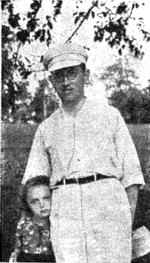 |
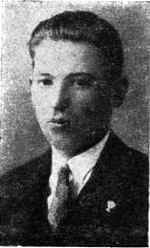 |
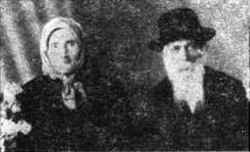 |
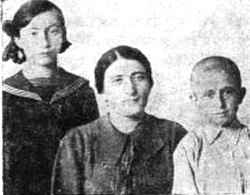 |
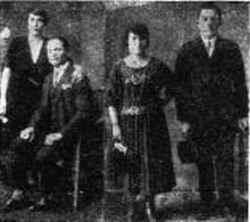 |
|
|
[Pages 325-326]
Jewish Centers around Rohatyn (Rogatin)
by Joseph Millner, Paris
The saintly Dr. Majer Balaban, of whom it can assuredly be said that another like him has not arisen in the field of the history of Jewish cities and towns in Galicia, supplied, more than fifty years ago, interesting facts regarding Jews in Rohatyn. He based his information on a census taken in 1765 (that is, two hundred years ago) according to which Rohatyn then contained a community of 797 Jews, and the entire region up to 1347 Jews! When we compare this with the demographic figures of those times (from the Petersburg Jewish Encyclopedia, published in Russian and edited by Dr. Y. L. Katsenelson and Baron David Ginsburg. Fifth volume, pages 77 and 115,) we can say that this population count represented a significant number Rohatyn could (and certainly did!) exert its influence over the smaller localities in its vicinity. In that era, Rohatyn had two smaller communities under its governance: Podkamien (128 Jews) and Stratyn (453 Jews.)
Historically, Rohatyn played an important role in the era of the false messiahs. Shabbethai Zevi, for example, found in Rohatyn a breeding ground for disciples, and there this false messiah had passionate followers. Jacob Frank, who had a real center of operations in Rohatyn, used this spirit for his own purposes. So it was in the beginning of the 18th century. These movements were so strong, that the Polish King, August III, had to take them into account, and decreed three cities to be “Frankist zones:” Busk, Gliniani, and Rohatyn.
Around the time of the Enlightenment, Rohatyn once again be came a “center”. A school for “worldly” learning and the study of Hebrew opened there.
In 1912, on the eve of World War I, Rohatyn was a town of 7000 inhabitants, 3217 of them Jews! It is known that the yearly communal budget amounted to the sum of 20,000 crowns.
The large Jewish centers near Rohatyn were:
Burshtyn: a shtetl that provided a famous name that has been carried by many Jewish families. Two hundred years ago, there were already 453 Jews in Burshtyn. It can be said with certainty that when Hitler's agents of destruction came to the shtetl, it contained around 5,000 Jews. It is interesting to note that from 1908 onward there was, in a single Burshtyn house, a school for 160 students, built with the money of Baron Hirsch.
Bukaczowce: 361 Jews in 1765, and 1,216 Jews in 1909. In 1909, 236 Jews paid the communal tax.
Bolszowce: A flourishing Jewish community. The number of Jews in Bolszowce, sixty years ago, is (erroneously) given in some sources as 2,256.
|
|
|
|
JewishGen, Inc. makes no representations regarding the accuracy of
the translation. The reader may wish to refer to the original material
for verification.
JewishGen is not responsible for inaccuracies or omissions in the original work and cannot rewrite or edit the text to correct inaccuracies and/or omissions.
Our mission is to produce a translation of the original work and we cannot verify the accuracy of statements or alter facts cited.
 Rogatin (Rohatyn), Ukraine
Rogatin (Rohatyn), Ukraine
 Yizkor Book Project
Yizkor Book Project
 JewishGen Home Page
JewishGen Home Page
Copyright © 1999-2025 by JewishGen, Inc.
Updated 15 Mar 2025 by LA